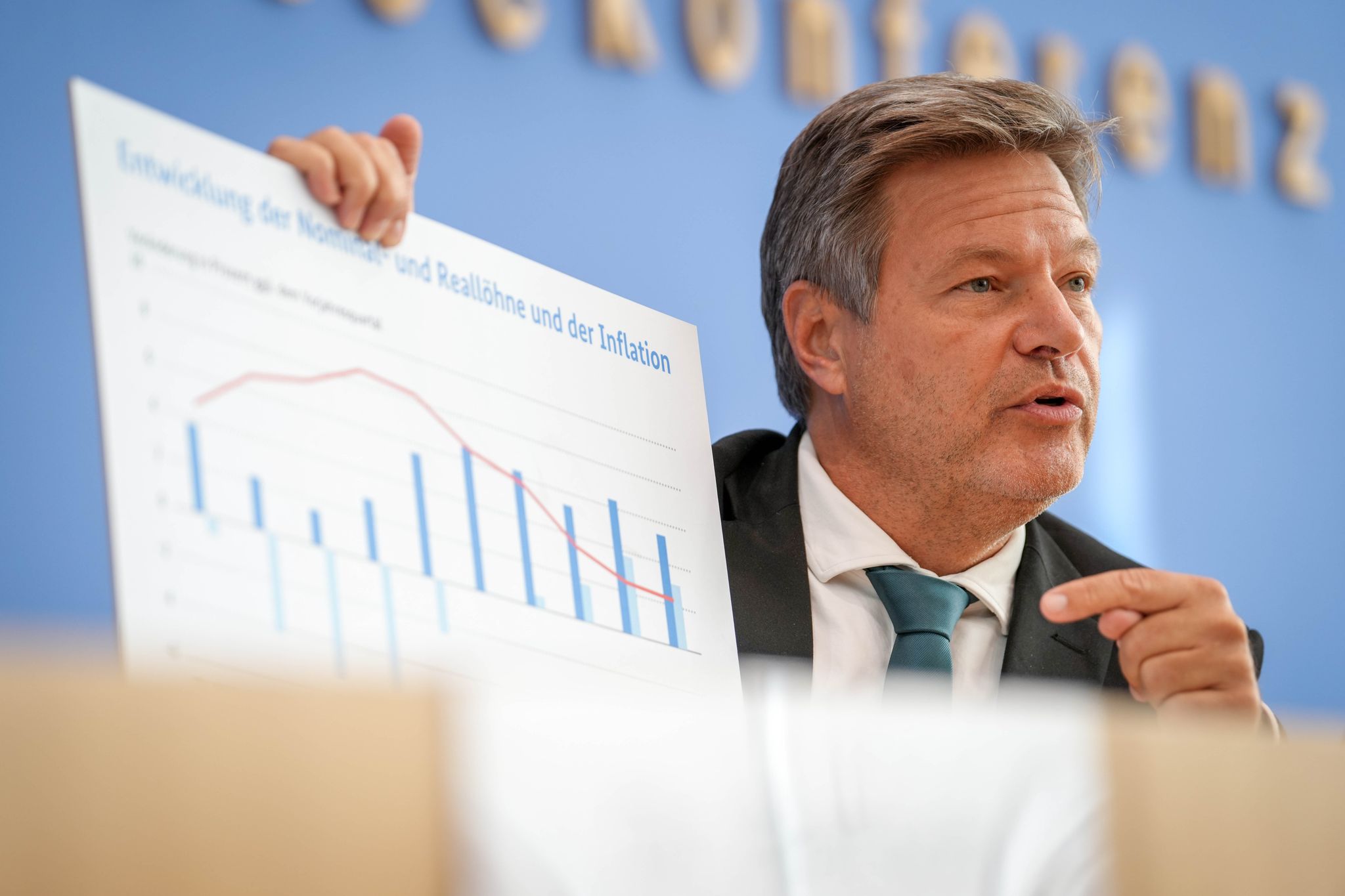Germany Heading For Recession As 2024 GDP Forecast Expected To Shrink By 0.2%
...As Berlin Proposes Tax Breaks, Employment Incentives, Electricity Subsidies To Stimulate Economy

Germany’s Gross Domestic Product (GDP) is expected to decline marginally by 0.2 percent in 2024, according to a revised government forecast on Wednesday, meaning Europe’s biggest economy is on course for recession.
The adjusted figures presented by Economy Minister Robert Habeck were down from previous estimates of 0.3 percent growth.
A report by the German News Service (delivered by dpa) indicated that the revised forecast does not come as a surprise as the country’s leading economic research institutes recently also adjusted their forecasts downwards, with GDP for the year expected to decline by 0.1 percent.
An economy is considered to be in recession over a whole year if growth is negative over the year.
German companies remain cautious due to the volatile economic and geopolitical situation, and private households are increasingly focusing on saving their income instead of investing in home ownership or consumption. The persistently high interest rate level is meanwhile curbing investment.
For 2025, Habeck expects GDP to increase by 1.1 percent, slightly more than the government’s prediction of 1 percent for 2025 from earlier this year and recalled that in 2023 as a whole, the economy shrank by 0.3 percent.
While conceding that the economic framework in Germany was not satisfactory at the moment, Habeck said he remains optimistic that Europe’s largest economy will find a way out of its current woes next year, he said: “Germany is a country full of strengths.”
The government hopes that private consumption will pick up again next year and that more industrial products will be purchased from abroad, which could boost sentiment among German companies.
Meanwhile, Berlin has also proposed a stimulus package including tax breaks, employment incentives and electricity subsidies to boost the ailing economy.
If those measures are “fully implemented, then the economy will grow more strongly and more people will find employment again,” Habeck said.
However, there are concerns in Berlin that the federal states might block some of the measures, which still need to be approved by parliament, including the upper chamber which consists of the leaders of the country’s 16 states.
There are also fears that they might block measures that would reduce tax revenue for the states, as leading economic institutes have expressed scepticism that the government’s initiative would be effective in kick-starting the economy. Many of the measures are yet to be implemented.
German Finance Minister Christian Lindner on Wednesday lashed out the government’s economic policy, calling for a change of course.
“An upturn depends on confidence, willingness to work, entrepreneurial risk and innovative strength,” Lindner told dpa, adding: “The framework conditions in Germany are no longer conducive to this.”
“Our economy has been shackled for years by bureaucracy and the tax burden, but – frankly – also by centrally planned economic measures to fight climate change and an increasing policy of redistribution,” Lindner, from the pro-business Free Democrats (FDP), said in an apparent dig at Habeck’s Greens, one of his party’s coalition partners in government. Habeck’s ministry is also responsible for climate change policy.
Lindner said that anyone looking for prosperity and social security must find the strength to change course. “Our country has to get its house in order.”
Germany’s coalition government led by Chancellor Olaf Scholz’s Social Democrats has been plagued by in-fighting for months. Tensions have been particularly high between the Greens and the FDP, who often represent opposing views on a number of issues, including climate and transport.
The new economic forecast will form the basis of the government’s next tax estimates. Lower tax revenues than previously predicted and higher spending on social security could weigh on the already fraught budget negotiations within Germany’s coalition government.
At the same time, lower growth prospects could constitute an exceptional situation so that the government could take on more debt under the country’s strict debt rules, which are enshrined in the constitution and limit budget deficits.











